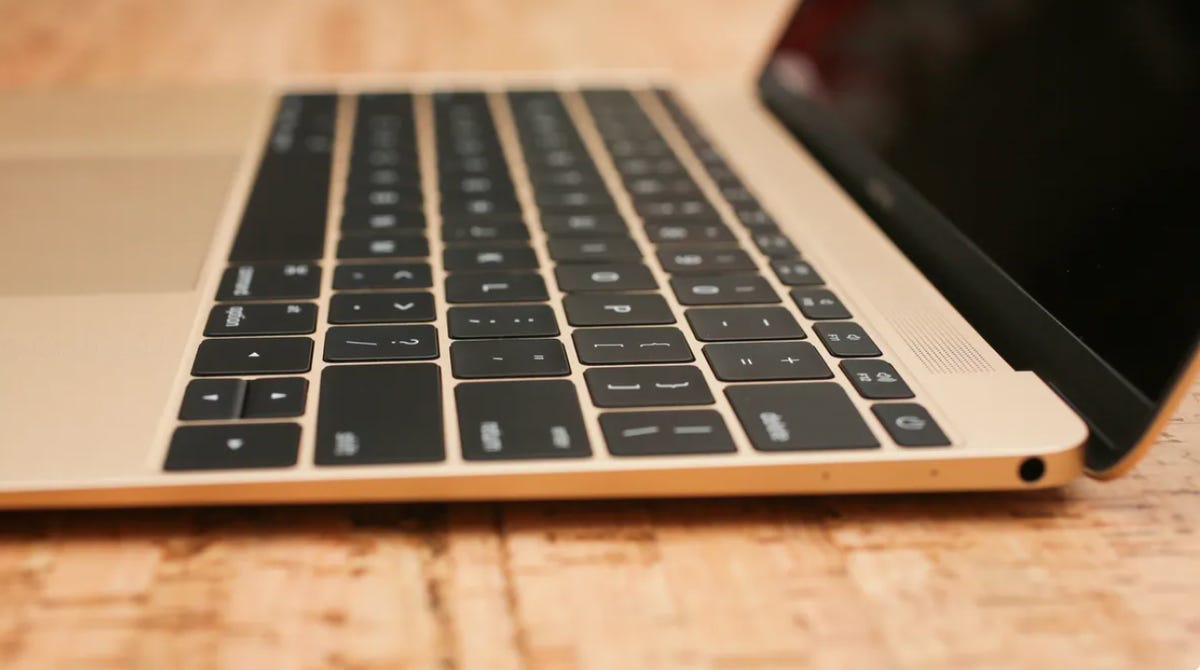If you’re a MacBook user, you might be eligible for money from a $50 million settlement Apple is paying to resolve complaints about defective keyboards.
A class action lawsuit filed in 2018 alleges Apple knew the “butterfly” keyboard design on its MacBooks was defective and “fraudulently concealed” the problem from customers.
The tech giant agreed to the megamillion-dollar payout in July and, after a California court granted preliminary approval on Nov. 28, eligible MacBook owners can now file a claim for their share.
Below, find out more about the MacBook keyboard settlement, including who qualifies for money, how much you could get and how to submit a claim.
For more class action suitslearn why Keurig is shelling out $10 million to users of its K-Cups and see if you’re eligible for money from T-Mobile’s $350 million data-breach settlement.
What is Apple accused of in the suit?

The first-generation butterfly keyboard from 2015.
Sarah Tew/CNET
Apple introduced the butterfly keyboard design in 2015 in its 12-inch MacBook. Its keys were attached with a wing-like hinge, as opposed to traditional keyboards, which use two pieces of plastic that cross each other and close like a pair of scissors.
The butterfly design was 40% slimmer, according to Apple, making the laptops sleeker, too.
But, according to the lawsuit, customers complained about “characters repeating unexpectedly; letters or characters not appearing; and/or the keys feeling ‘sticky’ or not responding in a consistent manner.”
The butterfly design “had some things it did really well,” then-Apple marketing director Phil Schiller told CNET in 2019. “It felt more firm and flat under your finger — some people really like that, but other people weren’t really happy with that.”
Schiller also acknowledged there were “quality issues” with the butterfly design, which Apple phased out in 2019.
The class action suit alleges the tech giant knew about the keyboard’s design flaw for years and didn’t tell customers, replace the keyboards or recall the computers. It launched a repair program in 2018, but only replaced old butterfly keyboards with new ones.
Apple did not respond to a request for comment, but in filings, it has denied any wrongdoing.
Who is eligible for a payment from Apple?
If you bought a MacBook between 2015 and 2019 and had to replace the keyboard or individual keys, you are eligible for compensation.
If you’re not sure if your model is covered, you can check here.
How much money could I get?
The amount you could receive from the settlement depends on how many repairs you had to have on your MacBook.
Consumers who had to swap out multiple keyboards within four years of purchase are considered Group 1 Settlement Class Members and are eligible for an estimated payment of between $300 and $395.
You can still qualify for Group 1 as long as you require two or more topcase replacements before Nov. 28, 2024. (The topcase houses the keyboard and other essential components.)
If you believe you’re part of Group 1 but didn’t receive a notification, you can call the claims administrator at 855-579-1311. (You can also fill out a change of address form, if needed.)
If you had to replace the keyboard just once, you’re considered part of the Group 2 Settlement Class and could receive as much as $125. You’ll need to submit a claim form, though.
And if you only had to replace individual keycaps, you’re eligible for up to $50. (You’ll also have to submit a claim form.)
How do I file a claim?
You can submit a claim on the settlement website or mail a completed form to:
re: MacBook Keyboard Litigation Settlement
c/o JND Legal Administration
PO Box 91341
Seattle, WA 98111
For all class members, if Apple doesn’t have a record of your repair or purchase, you’ll have to provide proof of purchase or repair.
The deadline to file a claim is 11:59 pm PT on March 6, 2023.
If you want to object to the settlement — or exclude yourself and retain the right to separate litigation — the deadline to notify the court is Feb. 10, 2023.
When will I get my money?
A final approval hearing is scheduled for March 16, 2023. Any payments would go out after that, but the process could be delayed by appeals.